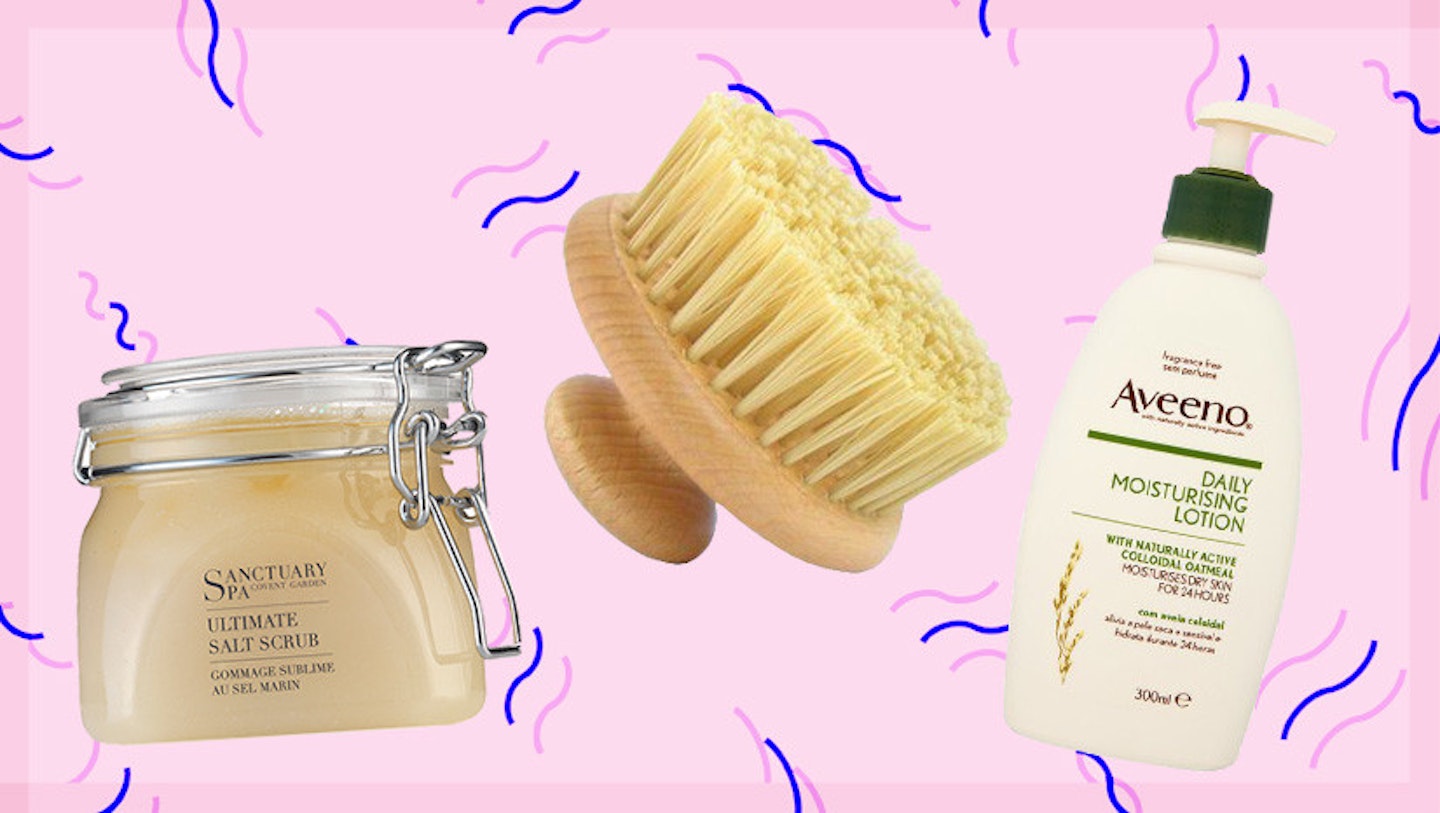If you managed to escape the grasps of puberty, or life in general, without getting stretch marks then fair play to you. I, on the other hand, have multiple areas of my body which are home to shaky silvery lines. Even the babe that is Chrissy Teigen has ‘stretchies’.
What’s more, loads of women are now taking to social media in full on body-positive mode to celebrate their stretch marks with the hashtag #ThighReading, which started with this tweet, and is so awesome, it makes me want to cry happy tears.
Just like my weirdly arched feet and abnormally small hands, it’s hard to imagine my body without them because I’ve become so used to them. And why should I? Oh yeah, because everywhere there’s products promising to blitz the stretch marks off my butt. Ladies, let me tell you that your stretch marks are fine just as they are, and I’m willing to bet a sizeable amount of money on the fact that your significant couldn’t give less of a shit about them.
But, I totally get it, you’d still probably rather they weren’t there (if you don’t, then bloody power to you, girl). So do these ‘miracle’ products work? And is there a way to avoid stretch marks in the first place and, wait, what even are stretch marks? I spoke to Dr Nick Lowe, consultant dermatologist at Cranley Clinic, to get answers to the questions we’ve been asking.
What are stretch marks?
‘Stretch marks are a weakening of the support structures in the skin, which are called elastin and collagen. They get weak in areas and they spread and stretch the skin and that’s why they’re called stretch marks.’
What causes stretch marks?
Think your stretch marks are the result of rapid weight gain or ‘filling out’? You’re wrong. ‘People think it’s the stretching from pregnancy or increased weight, but in fact it can happen when hormones start to change, which is often during pregnancy or adolescence.
‘For some people, these changes occur in adolescence and pregnancy for reasons that are not clear. They then damage the collagen and elastin structures and cause them to weaken. So it’s not just putting on weight and stretching, it’s actually a weakening of the collagen and elastic by hormones.’
This change in hormones then makes skin more susceptible to stretching. There’s definitely elements of genetics involved too as Dr Lowe explains: ‘If your mum has stretch marks, you have a higher risk of getting them.’
How do you get rid of stretch marks?
Just as I suspected, it’s impossible to get rid of stretch marks completely, but you can try to reduce their appearance. ‘We offer gentle microdermabrasion called Dermasweep, which stiumulates collagen and then we’re able to infuse the skin with things that can help stimulate collagen and elastin.’
Other treatments include something called a Fraxel laser and fractional radiofrequency, both of which aim to stimulate collagen and elastin and tighten the skin around the stretch marks. Bear in mind that if you’re pregnant, some of these treatments may not be suitable, so consult a professional if this is the case (although, you should be consulting a professional if you’re considering these treatments, anyway).
If these methods seem extreme (and they do to me) your GP or a dermatologist should be able to help. ‘They can prescribe something called a retinoid gel, which is a Vitamin A related gel that’s prescription strength and you put it on every second day. It stimulates the cells and the skin called fibroblasts to produce more collagen and elastin.’
Are there any over-the-counter products that can help with stretch marks?
That new cream that costs a bazillion pounds and promises to leave you with good-as-new skin? Going on Dr Lowe’s advice, don’t bother. ‘None of the non-prescription so-called stretch mark creams, in my opinion, are effective, nor have they really been subjected to proper research study,’ he says.
‘I don’t believe Bio-Oil does anything apart from moisturise the skin, and there’s much better moisturisers, like the Aveeno Daily Moisturising Lotion, £7.65.’
Gentle body exfoliation using body scrubs and body brushes, however, could help, especially when combined with a retinoid gel prescription. ‘It may help in a slight way to stimulate the fibroblasts a bit to help with the stimulate collagen and elastic. That’s the theory.’
So exfoliation isn’t a guarantee, but it’s not a bad routine to get into anyway because the worst you’re going to end up with is baby-soft skin. Get yourself a body brush like The Body’s Shops Round Body Brush, £8 and a good scrub like Sanctuary Spa Salt Scrub, £12 or you could even make your own.

Can you stop yourself from getting stretch marks?
‘Not at the moment, but we’ve been searching for something that truly increases elastic tissue in the skin for ages, but sadly there isn’t anything. There are quite a few products out there that claim this that and the other, but as usual, the claims are totally in excess of their benefits.’
Like this? Then you might also be interested in:
**Follow Chemmie on Twitter **@chemsquier
This article originally appeared on The Debrief.
